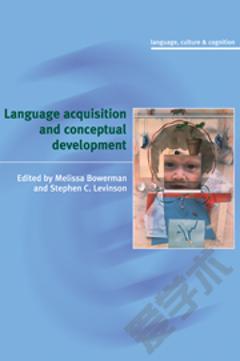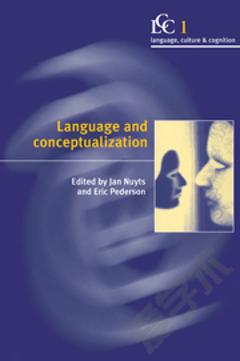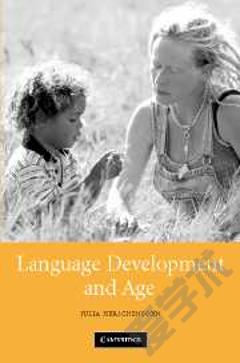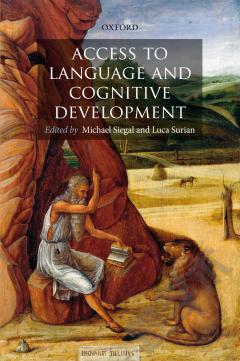Language Acquisition and Conceptual Development
Preface Introduction Part I. Foundational Issues: 1. The mosaic evolution of cognitive and linguistic ontogeny Jonas Langer 2. Theories, language, and culture: Whorf without wincing Alison Gopnik 3. Initial knowledge and conceptual change: space and number Elizabeth S. Spelke and Sanna Tsivkin Part II. Constraints on Word Learning?: 4. How domain-general processes may create domain-specific biases Linda B. Smith 5. Perceiving intentions and learning words in the second year of life Michael Tomasello 6. Roots of word learning Paul Bloom Part III. Entities, Individuation, and Quantification: 7. Whorf versus continuity theorists: bringing data to bear on the debate Susan Carey 8. Individuation, relativity, and early word learning Dedre Gentner and Lera Boroditsky 9. Grammatical categories and the development of classification preferences: a comparative approach John A. Lucy and Suzanne Gaskins 10. Person in the language of singletons, siblings, and twins Werner Deutsch, Angela Wagner, Renate Buchardt, Nina Schultz and Jorg Nakath 11. Early representation for all, each, and their counterparts in Mandarin Chinese and Portuguese Patricia J. Brooks, Martin D. S. Braine, Gisele Jia and Maria da Graca Dias 12. Children's weak interpretations of universally quantified questions Kenneth F. Drozd Part IV. Relational Concepts in Form-Function Mapping: 13. Emergent categories in first language acquisition Eve V. Clark 14. Form-function relations: how do children find out what they are? Dan J. Slobin 15. Cognitive-conceptual development and the acquisition of grammatical morphemes: the development of time concepts and verb tense Heike Behrens 16. Shaping meanings for language: universal and language-specific in the acquisition of spatial semantic categories Melissa Bowerman and Soonja Choi 17. Learning to talk about motion UP and DOWN in Tzeltal: is there a language-specific bias for verb learning? Penelope Brown 18. Finding the richest path: language and cognition in the acquisition of verticality in Tzotzil (Mayan) Lourdes de Leon 19. Covariation between spatial language and cognition, and its implications for language learning Stephen C. Levinson Indexes.
{{comment.content}}








 京公网安备 11010802027623号
京公网安备 11010802027623号